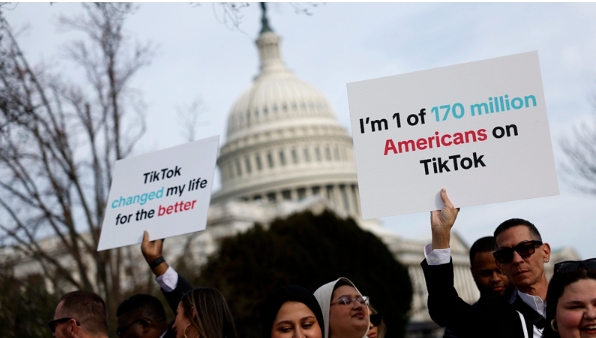What’s Happening?
A new law targeting TikTok, the Chinese-owned social media platform, is set to take effect. Without congressional action, TikTok may face interruptions in the U.S., potentially impacting its 170 million American users. The law demands that TikTok’s parent company, ByteDance, divest its U.S. operations to a qualified buyer or cease operations entirely.
Why Is TikTok Under Fire?
The U.S. government cites national security concerns, alleging that TikTok could allow the Chinese government to access vast amounts of data about American citizens. However, the government has not publicly provided detailed evidence to substantiate this claim, leaving many skeptical about the urgency and validity of the threat.
Key Legal and Practical Issues
- Legal Framework: The law targets foreign adversary-controlled apps, focusing on corporate ownership rather than content or free speech. This distinction has allowed the Supreme Court to uphold the law.
- Fines and Enforcement: Companies like Apple, Google, and Oracle, which host TikTok’s data or distribute the app, could face significant fines if they fail to comply.
- ByteDance’s Stance: ByteDance has refused to sell TikTok, complicating compliance with the law.
What Are the Broader Implications?
- Global Free Speech Concerns: Critics argue that banning TikTok undermines the U.S.’s reputation as a global champion of free speech. It sends a message that the U.S. may be suppressing a platform out of fear of Chinese influence.
- A Slippery Slope: The law could set a precedent for targeting other Chinese-owned companies, such as Tencent, which owns stakes in popular games like League of Legends and Fortnite. This could provoke backlash from younger Americans and the global gaming community.
Is the Law Justified?
While concerns about China’s potential access to U.S. data are valid, critics point out:
- The lack of transparency from the U.S. government in providing evidence of the threat.
- The absence of comprehensive data privacy laws that would better protect Americans from foreign data collection.
- The law’s potential to erode trust in the government, especially without clear justification.
What’s at Stake?
- U.S. Credibility: Failing to provide evidence risks the U.S.’s moral authority in defending free speech and democratic values.
- National Security: Transparency about the threats posed by TikTok could help other nations counter similar risks from Chinese-owned companies.
- Economic Impact: TikTok generates billions in revenue for U.S. creators and businesses, making its ban economically disruptive.
Conclusion
The TikTok ban raises critical questions about balancing national security with free speech and economic interests. To justify such sweeping actions, the U.S. government must declassify evidence of the alleged threat. Transparency is essential to maintain public trust and uphold democratic values on the global stage.
